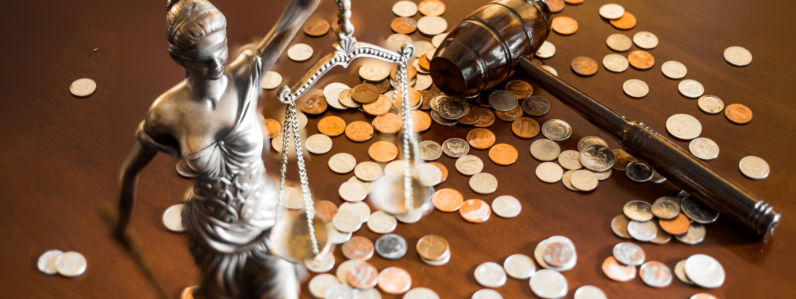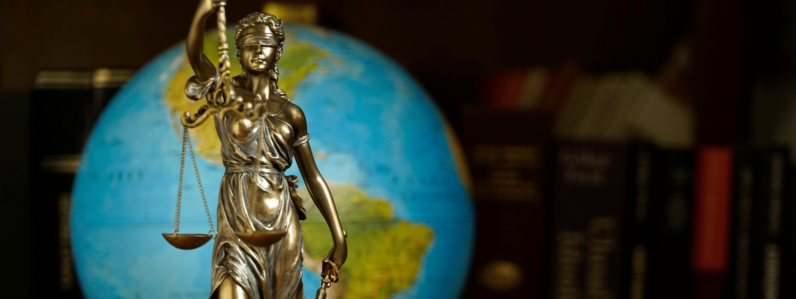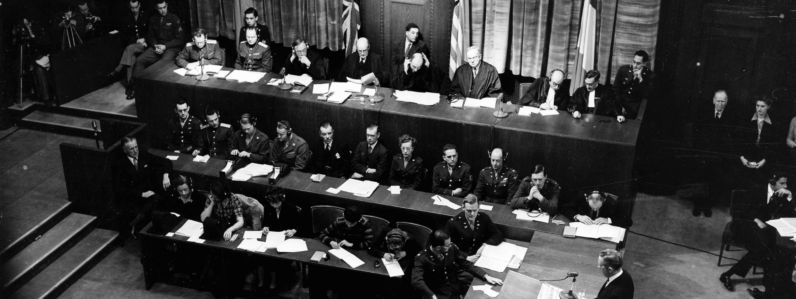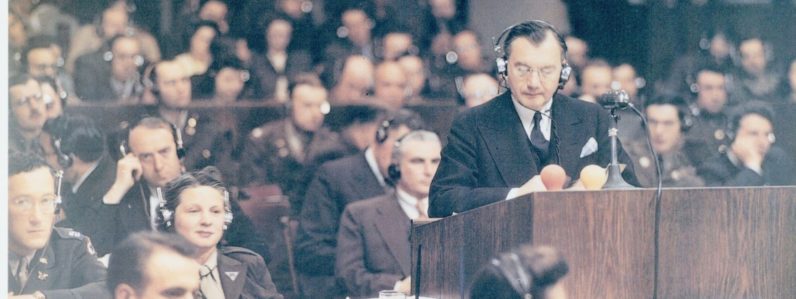The improving condition of Jamestown’s industries and trade, which many of you may not see because you are too close to it, is a source of satisfaction.
In one year, from May 1936 to the first week of May 1937, the payrolls of this city’s industry increased over 43%. During the same period the nation-wide increase was about 30%. So you see, Jamestown’s recovery was one-third greater than that of the nation as a whole.
These are not mere figures in a book. They mean more at firesides than in financial statements. More people at work for higher wages means less burden on taxpayers, more purchasing power for merchants, more comforts for workmen’s families, and safer, happier and sounder homes. The ultimate test of the goodness of every public policy, every economic movement, every social force, is the good it brings to the American home.
I am glad to see too that the intellectual life of the community is stirring and that smugness and self-satisfaction is not to smother our curiosity and desire for improvement. No worship of prosperity, and no yearning for return of outworn political philosophies will conceal from the wise the social and economic problems that underlie modern life, and challenge solution.
Among those institutions that keep us aware of the larger movements of our time we number the Chautauqua Institution, pioneer in adult education. We are happy that our neighbor, whose scholarship, music, art and worship we are permitted to share, is again soundly financed, and its future assured. That adds real attraction to the community as a satisfactory home.
The support by almost 1800 people of the Civic Forum gave me renewed confidence in our future. It demonstrated the determination of our citizens to keep pace intellectually with the moving world, and encourage those who believe we cannot live by bread alone.
And then tonight we gather to dedicate the most modern instrument of culture to our local use. It is not easy to estimate what it may mean to us to have in our city, both the voice of the world and the ear of the world, through a progressive, modern and well-managed local radio station, and the hook-up with the pioneer network of the National Broadcasting Company.
I have some personal pride in having had a small part in bringing you together on this occasion. Many months ago, when Harry Wilder told me that he was considering investing in Jamestown, I was able, out of a long and happy experience, to recommend Jamestown to him as a desirable place in which to live, to invest, or to do business. I was able to say to him that Jamestown is a sound, individual and thrifty community. It is not a mere suburb of some larger city, nor is it a mere stopping-off place on your way to somewhere else. It is somewhat isolated, but it exists on its own account.
On the other hand, from my acquaintance and from his reputation among men whose opinions I valued, I was able to say to some Jamestown citizens that Harry Wilder and his organization were progressive business men of high standards, with the kind of vision that foresees possibilities and the kind of courage and enterprise that builds to meet them.
So tonight, it would appear that both of my recommendations had been found true. You appear to be getting on very well together, and I am sure neither of you will ever regret the relationship, or wish you were strangers again.
That the Jamestown Station WJTN has been found worthy of a place in the network of the National Broadcasting Company is an event of double significance. It signifies that this station has already achieved efficiency, a standing, and an equipment, which entitles it to a place in that great national chain. It also signifies that it is beginning an era of greater usefulness, and greater satisfaction, to its patrons. I congratulate the National Broadcasting Company on its discovery, and its recognition of Jamestown, and congratulate Jamestown that it has gained the National Broadcasting Company as one of its local enterprises, the two being brought together by the Wilder organization.
The radio science, the art of using the radio, and the industry which has made it widely available for commercial purposes, have all developed in so short a time that we are scarcely up with it. The full meaning of radio to the world we can see only through a glass darkly.
The radio has brought the world to the fireside of the humblest home. It is a Godsend to the shut-in, to the indisposed, and to all who are home bound by temperament, or necessity. Gorgeous pageants resound in homes of the poor today that even the rich could not enjoy before. It has annihilated space. I have listened to Broadway music on the desert, and on ships far out at sea. When it was doubtful whether I could face you in person tonight, the broadcasting company simply said, “We will set up a microphone wherever you are, and hear what you have to say – if anything.”
And the best of it all is that you can shut off your radio. Many hope that there will be some invention by which they will be able to shut off, at times, their neighbor’s.
What a world it is that is thus brought into our living room at a touch of the dial! What a hurried procession of events: Coronation follows after abdications! Some voices of the air threaten war, as others promise peace, and the whole range of tragedy and comedy drifts in over the waves in a single evening, in a blend of great wisdom, and of amplified nonsense.
We get the news by radio – now become surprisingly effective in gathering it, and concise in telling it. We sometimes wonder if the news features are not elevating gossip to a national profession, and whether there is not too much keyhole efficiency in some of our commentators.
We get the newest hit in short-lived jazz, along with the finest old songs that ever warmed the hearts of men and women. We hear educational discourses and we are approaching a national speech in which local accents, and dialects, are disappearing as sections broadcast to each other.
One may, without leaving his armchair, follow his favorite sports with almost as much excitement as he would get if he were in the bleachers.
Religion has found a new ally in the air wave, and the newest instruments of persuasion carry the oldest and finest messages of Christianity, and over the radio come some of the best sermons that one ever slept through.
Perhaps the field of politics and government is more altered by the advent of the radio than any other line of activity. It has opened between public officials and the citizens a direct line of communication. No headlines intervene between the speaker and the reader to divert the meaning of the message. A radio does not misquote, nor distort meaning by selecting parts to carry. The radio lets a man stand forth and make himself or ruin himself. It will aid him in either process. There is a mysterious way in which lack of sincerity, lack of balance in one’s viewpoint, and lack of knowledge of one’s subject steals over the radio waves, even when one is reading a well-rehearsed speech, written by someone else. The radio reveals the personality of the unseen speaker, and there are those who have gained by being revealed, and there are others who have lost by it.
The radio has demanded a different manner of address on the part of public men. The old fashioned speaker – long on stories and short on facts, strong on mimicry and second-hand humor but weak on information – has failed to catch the radio audience. An audience that goes to a hall to hear a political speaker is entrapped, and must submit to hearing him through. The radio audience is not entrapped. It must be held by a continuously pleasing presentation of a worthwhile subject or it will shift the dial to a better program.
The radio listener sits in his comfortable home, and makes a cold and unimpassioned appraisal of the political appeal that comes over the air. Exaggerated pictures of dangers to society, and menaces to our form of government painted by neurotic statesmen have a curious lack of effect in these surroundings. Passionate appeals become slightly ridiculous, and inflammatory remarks lose their power when weighed in the calm of the fireside.
And the radio has made it difficult for a candidate who has only one speech. The man with one idea has a short radio life. It has also made it very difficult for a public speaker to make provincial speeches, designed to please the audience of a locality only, or of a some particular group.
There can be little doubt that radio speaking has enforced upon public speakers the necessity for better information, for a more temperate style, for more careful composition of their addresses, and for a broader viewpoint, and a sounder philosophy.
Strangely enough, while the influence on public men has been in the direction of more careful and accurate statements, and more moderate speeches, I cannot see that it has restrained advertisers in similar fashion. For some reason, our radio advertisers seem to have cultivated the gentle gift of exaggeration in a way that makes politicians’ promises look conservative.
What radio may yet do for the world teases the imagination. We know that television is not very far away, and, if I am to judge from the radio artists that are present tonight, it will add much to the appeal of the radio when they may be seen as well as heard. One does not need to indulge in flights of fancy to see that the coming years will witness great changes that we cannot now even guess at.
Jamestown now takes its place in the radio world with a modern broadcasting station of its own. It can speak to its neighbors in a clear and understandable voice. The message of the public man, or advertiser, and organizations, that wish to reach their membership, can now be heard. On the other hand, our own local station will bring the news, and the music of the world, surely, and clearly, to our dials. For this, we are grateful to the radio organization, which is now one of our local institutions.






